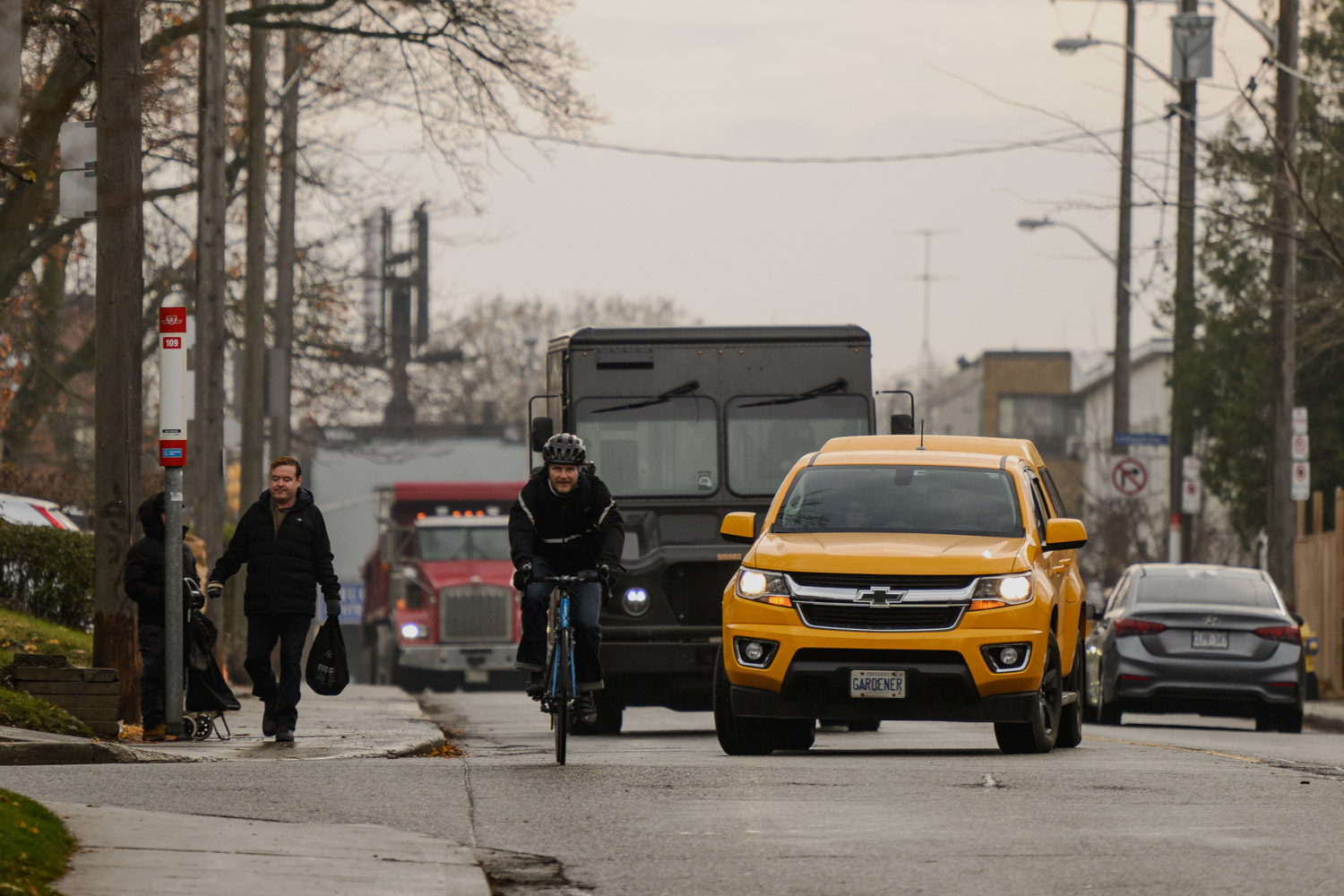In Toronto, even the most modest bike lane proposal is met with outsized anger and fear.

thelocal.to
Its a good piece, outlining the largely irrational, over-wrought opposition to a cycle track here, and pointing out erroneous assumptions/assertions by opponents.
****
At the same time, there are a couple of implicit things that are worth noting......
One is that scope of change in this particular area; with a sea of new towers coming (which we're covering here at UT), and the Crosstown (well, eventually, maybe, one day)..... and the cycling facilities too, among other things.
That is a lot of change. People are often resistant to change of any kind, good, bad or middling. The world can't stand still due to nostalgia, obstinance or stubbornness..... that said, this is a lot of change for anyone to take in; and I have some sympathy for those whose heads are spinning at the pace and scale of same.
Though I have no sympathy for their getting basic facts wrong, or for making some truly peculiar statements that imply that cyclists are a greater threat to young children crossing the road than aggressive drivers......... (their parents likely among them)
Also of note is the need to bring areas along by growing cycling from its areas of strength (downtown, near college/uni campuses etc.) to help change the conversation in the community ahead of cycle track additions.
To be clear, I think this one is perfectly supportable, I'm simply saying its easier to get infra through when you have 6% or more of the community already biking (for commuting) vs when its notably less than that.
But part of the timing of these investments is to take advantage of road resurfacing/reconstruction programs that may come along only once in a generation or even a lifetime, and that is an important consideration.






